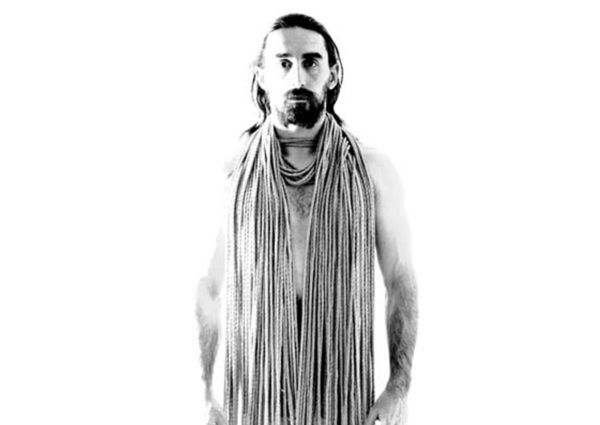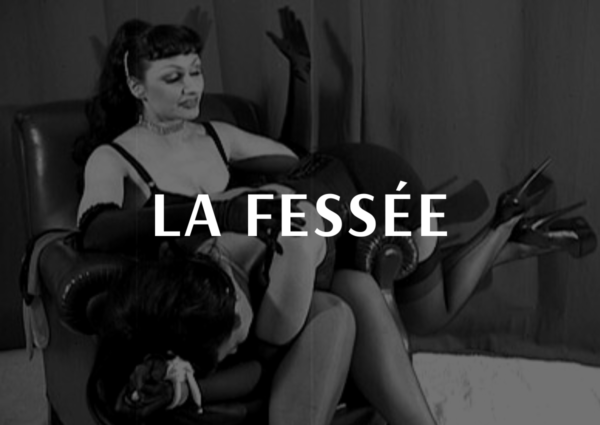After Pulwama, the Indian media proves it is the BJPs propaganda machine, Sign up for a weekly roundup of thought-provoking ideas and debates, Fox News bosses scolded reporters who challenged false election claims, To fight defamation suit, Fox News cites election conspiracy theories. You can find them on, The #GBVinMedia Campaign: Media Reportage Of Gender-Based Violence, #IndianWomenInHistory: Remembering The Untold Legacies of Indian Women, How To Write About Abortion: A Rights-Based Approach, The Crowdsourced List Of Social Justice Collectives Across Indian Campuses. The nation-state and its ruling class view borders as very different from the people who inhabit these liminal spaces or communities that have been affected by border making and policing practices. This is not the violent right wing and their siege; its centrist and liberal media that is also relitigating history, deconstructing the core values of the constitution. They dont. We live in a profoundly unequal society, where every day brings news of new devastation. Your prose is hopeful there. Its when we lose hope that we believe that we have lost everything. [3], She started singing after a few years as RJ. by Suchitra Vijayan Hardcover 1,759.00 2,023.00 You Save: 264.00 (13%) Usually dispatched in 1 to 3 weeks. The complexities of the Naga peace process were apparent on a visit to remote villages of Tuensang district where many of the women remained silent with others admitting they had never encountered an outsider, except Indian soldiers. Again, in the India-China border, she finds a young army officer closely referring to a book that contradicts the official version of the Indo-China war of 1962, and concludes that perhaps, he recognizes that most of soldiering involved cynical subordination to ideas that no longer made sense.. No one can write a book alone. Vijayan began her journey in Kolkata. [6], She wrote a short story, a graphic illustration of an episode in the life of a black peppercorn called Kuru-Milaku, called "The Runaway Peppercorn".[7]. It took me 8 years to write the book. In terms of violence, there is also this tendency to photograph and display the bodies of marginalised communities when they experience violence. While Nehru was still declaring this victory, the slaughter began. Rumpus: How hard was it to write nonfiction about such a violent contemporary history? I almost never forget, I remember entire episodes or events since I was six years old. Suchitra was born in Chennai, Tamil Nadu, India, as the daughter of Ramadurai and Padmaja. You dont need a Leni Riefenstahl today. Check posts or bunkers were not part of the landscapes of my home. It offers brief historical notes on how the nations current borders came into force alongside accounts of increasing militarisation, disputes, little massacres and forgotten pogroms, no-mans-lands, and the people through whom the border runs like barbed wire. She entered the show on day 28 as a new contestant and was evicted on day 49. Suchitra Vijayan undertook a 9000 mile journey over seven years to India's borderlands to write Midnight's Borders: A People's History of Modern India. Her work has appeared in The Washington Post, GQ, The Boston Review, The Hindu, and Foreign Policy, and she has appeared on NBC news. Suchitra Vijayan complicates and expands our understanding of the South Asian American experience, urging readers to consider stories that cast dark eyes at India, a strategic ally of many Western nations. Rumpus: What do you think is the value of well-crafted literary nonfiction in sustaining conversations about equality and justice? I now think twice about calling friends, worried if this might put them at risk. I still do. Suchitra was married to actor Karthik Kumar between 2005 and 2017. This idea of responsibility gets obfuscated in many ways. It is here that we subsume all that we otherwise celebrate under the demands of freedom, progress, liberalism, liberty, and secular ideals.". The book was originally going to be a photographic body of work, which changed when I started writing. Professor Nandita Sharmas work is an excellent way to engage with this history. Aruni Kashyap writes in English, and his native language Assamese. Suchitras account of her journeys across the undefinable and ever-shifting borders between India and its neighbours is gripping, frightening, faithful and beautiful. A literary community. That changes how you write and photograph a place. Beyond the confusion over the death tolls at Balakot, news organizations variously reported that between 25 and 350 kilograms of the explosive RDX was used in the attack, when no such information was officially released. Worse, we have been disciplined to accept injustice and inequality as given. Vijayan creates a constellation of micro-histories of people who have lived through the violence that India has committed in its borderlandsinjustice that has irrigated the glamour and prosperity we witness in what some of us in those borderlands call mainland India. Vijayan, a barrister by profession, is a founding director of Polis Project, a hybrid research and journalism organization in New York. The Indian media must learn to portray the conflict and human rights violations in the region in a more nuanced way, and not reduce Kashmir to a catalogue of death, destruction and emergency laws. Such writings have long been implicated in the history of colonial ethnographic practices, where native informants are poised to become the voices of the empire. Vijayan undertakes a seven-year long, 9,000-mile . Suchitra is now a singer-songwriter as well, composing music on her own and in collaboration with Singer Ranjith. She is actively involved in circulating urgent and underrepresented news from the world through her online platform. But for me hope is radical; hope is the last bastion of our defense. And join us by becoming a monthly or yearly Member. Suchitra Vijayan. I can see how religious Hindu fanaticism has started to spread its tentacles in both the Democratic and the Republican parties, and this is primarily because of an absence of balanced stories about India. This is the backdrop against which we map how border practices and policies have played out in India. She is currently working on her first novel. The book is a prelude to what was coming, and is also a impassioned plea to my readers to ask some fundamental questions of what it means to live in a country like Indiawhat is the function of a state when its primary preoccupation is no longer the citizen but a performance of an ideology? The two press briefings by the foreign secretary and Ministry of External Affairs spokesperson entertained no questions. They all have very specific and carefully curated origin/immigrant stories that cleverly exploit the model minority trope. Could you comment on how much our present border security policies have changed in the last few years? Take a look at theseevents: The vast infrastructure of detention centers being built in Assam and outside; a politician from a ruling party incites violence by saying, goli maaro saalon ko, and remains free; a minister, a Harvard educated technocrat, garlands and celebrates men for the grave crime of lynching; Dr Teltumbde and other BK 16 [the 16 arrests made in the Bhima Koregaon case] political prisoners remain incarcerated with little, no or manufactured evidence for being dissenting subjects; and a standup comic is arrested for the crime of existing as a Muslim. This contributed to the long-running, brutal silencing of Kashmiris and their struggle for self-determination. Apart from his long-suffering wife, no one else in the family knows that he is a spy. Excellent interview, brave insights and critical reflections! What moral and political stands we should take in the face of ongoing oppression. Suchitra Vijayanis a barrister-at-law, writer and researcher. How did you achieve empathy in your writing, without the privileged lens that is common in journalistic canon? Its about what people like me should do. It is necessary to speak truth to power through our art. What changeshave youobserved in the way you treat your subject after finishing your journey and book? Creative . Its an immense privilege to be able to write and be published. Its feudal, entitled, and cannibalistic. Please abide by our community guidelines for posting your comments. Copyright 2023, THG PUBLISHING PVT LTD. or its affiliated companies. Ali lived right on the edge of the India-Bangladesh border. How violence against women and girlsand even how sexual violence against men and boys (something we dont even talk about enough) is depictedis all seriously problematic. Suchitra Vijayan is a writer, photographer, lawyer, political essayist, and a lecturer. The Family Man has found tremendous success as a slick and funny espionage drama, particularly for its treatment of the protagonist, and even for humanising terrorists. Despite the failures in investigation and prosecution related to criminal trials arising out of the pogrom, the judiciary has projected itself as an able and willing neutral arbiter of justice that is not complicit with the deep structures of Hindutvas anti-Muslim prejudice https://t.co/EFf5bxYEBt, True societal change has always emerged from the ground-up, with communities fighting for their own freedom and dignity. I dont think theres just one emotion that drives a writer to finish writing. You will see very little critical commentary or public positions on Hindutva, its corrosive role in India, or how RSS works here in the USfunding and now interfering in US elections. Second, as the media continued to promote government positions on the crisis, other critical political issues dropped out of public scrutiny. She was part of a music band at PSG. They are arriving from various cities and people I have never met. In Midnight's Borders, barrister, political analyst, and writer Suchitra Vijayan documentsmany such telling accounts of lives both growing and barely getting by alongIndian borderlands. Her work has appeared in The Washington Post, GQ, The Boston Review, The Hindu, and Foreign Policy, and she has appeared on NBC news. Why dont people see the ground shifting beneath their feet? He writes TPS reports for an overbearing boss who calls him the minimum guy. He has replaced eating vada pav at ungodly hours on the streets with overpriced salads. While Border Pillar No 1 becomes a convenient stump for children playing cricket along the land that India shares with Bangladesh, roughly 2000 kilometers away in Punjab a woman farmer watches on as the army builds a bunker on the few acres of land she owns. Already a subscriber? First, does my work aid the powerful? No one is a stakeholder herethese are people, humans, citizens, who have been deprived of what the Ambedkarite constitution promised them. Some people later chose not to be included because they feared repercussions, especially as the NRC process started playing out. Vijayan: Most Indian American writers, especially many of them who occupy the broad spectrum of literary to punditry, come from immense privilege of caste and class. Who gets to shape these stories, what stories are chosen, what stories then are exiled? The result is a gripping, urgent dispatch from a modern India in crisis, and the full and vivid portrait of the country weve long been missing. Atmany points in Midnight's Borders, we see several men in positions of power view the women, who cross over from the 'other' side, as violable. You can speak of confidence and body positivity and defend selling skin-lightening creams. An unprecedented militarisation of these spaces accompanied this. These are edited excerpts from the interview: 'Midnight' seems to be a metaphor for multiple things both freeing and frightening. As the author notes, here, beauty and violence coexist, but never as a binary. A. Midnights Borders is fascinating, eloquent in its insights, and unflinching in its depiction of the dark side of nation-building. As she travelled 9000 miles over seven years across Indias borders, some drawn so hastily that they cut across fields, homes and courtyards, she met men, women and children, finishing with endless notebooks, over a thousand images and more than 300 hours of recorded conversations. Her quest took her to the farthest ends of the India-Bangladesh/ China/ Myanmar/ Pakistan borders. Rumpus: I believe your book contributes to an important conversation about India we must have right now in the United States, for its own sake. Rumpus: Toni Morrison said that she writes from a place of delight, not disappointment. What is the function of seeing and documenting? The two officers who avert the attack narrowly escape death but are left with broken bodies and broken lives. More importantly, reporters need to engage with what it means to administer what has been called the worlds most militarized zone. Only then can the country answer a more fundamental question: Just what should be done to create conditions that allow Kashmiris to choose their destiny? I wrote a book along with it comes love, scorn, and sometimes even ridicule. There is also a lot of deep-seated misogyny, casteism, and anti-Black racism in our communities that need to be addressed. Husain Haqqani: Pakistan released the Indian pilot. We need more such books. Suchitra Vijayan's debut book, Midnight's Borders, is a genre-bending book of nonfictionmade of stories, encounters, vignettes, and photographsabout home, belonging, and displacement.The book recounts the author's recent journey across India's land borders covering 9000 miles over a span of seven years. The revolutionary Constitution not only created a social world made of contradictions, but it very soon became the tool of suppressing dissent, deployed laws like the Armed Forces Special Powers Act (AFSPA), and Public Safety Act (PSA) in Kashmir. Our mostly volunteer-run magazine strives to be a platform for risk-taking voices and writing that might not find a home elsewhere. Second, there is a clear distinction between speaking against the powerful and claiming to speak on behalf of the "voiceless". Firstpost - All Rights Reserved. Even those who now write about Modis India, will never write about Brahmanism or be critical of how caste works in the diaspora. From the epoch of Empire to the nation-state, border making is fundamentally a political project that creates, sustains, and reinforces inequality. The pandemic showed us that crises and recurrent disasters that annihilate our lives are here to stay. The constant making and remaking of who is a citizen, who is not, is accompanied by a profoundly dehumanising process. Its been a little over a week since the book came out, and every day this week, I have woken up to emails, messages, and DMs from readers. As I travelled, I was very aware of these inherent power differences. She is not alone. I think its the other way round, these communities have always been speaking, writing, documenting, teachingwe must simply listen rather than represent them in any way. This income helps us keep the magazine alive. Required fields are marked *. A: I dont agree with this kind of framing, because its not that underrepresented people dont have voices. In her book, she makes her intention clear at the very beginning, claiming that this endeavor is not to give voice to the voiceless but to critique the nation-state, its violence, and the arbitrariness of territorial sovereignty. She acknowledges that a book in its limited scope cannot really encapsulate the entirety of this journey, and it will remain more of a scrapbook, a collection of images, texts, poetry, and maps. Rumpus: Were you trying to write a hybrid-genre book? Modi met with senior police officers and ordered them not to intervene as violence raged. By Suchitra Vijayan, Why should I read it? Her writing has appeared in The Citron Review, Dukool Magazine, Cerebration, Feminism in India, Times of India (Spellbound edition), and others. Midnights Borders, a work of narrative reportage, is the fruit of this journey. You can find them onYouTube&Linkedin,and can also check out their websitehere. Our borders had become a spectacle, and we the cheering mob, she says, as she calls for purging hatred for the sake of posterity. There are enough stories of people parachuting into communities to do human interest stories. The post-Cold War and 90s rhetoric of a borderless world that accompanied globalisation also kick-started massive border fencing projects in India. . And, in many cases, they are children of the literary, cultural, or political elite who have long been the beneficiaries of the Indian state. We perform rituals of freedom in a right-less societywe dont ask if the rules, laws, and policies that are put in place are fair, just, right or equitable. The Indian government bears some responsibility for this: Amid this brinkmanship between the two nuclear powers, Indian Prime Minister Narendra Modi did not address the nation directly. We have already chosen silence and obfuscation even before the pushback has arrived. I wanted to make sure that I was writing in a way that was honest and true to my initial reactions, and capture that without centering myself. And were there any apprehensions since you began working on this book? The people in this book are eloquent advocates of their history and their struggles. Why the Modi government lies. One of the reasons why this book was written was to step back: to say that this violence that you and I listen to and encounter is not new to say that this violence is not new. . Its not comparable and should not be compared. At a time when right-wing nationalism is crescendoing in India and across the world, Suchitra Vijayans Midnights Borders raises pertinent questions about the very foundations of Indias nationalism the cartography of South Asian nation-states defined by arbitrary lines drawn hastily by the British colonial administration. They took my land, they stole my life, they stole my future, they took my nightmares and they stole my dreams too. Ali went missing in 2018. This is a tightrope that you walk so well. We still argue if something should be a massacre, a pogrom, or a riot. The people in the text fear statelessness, unknown violence, and being forgotten. Also, I am an unknown and insignificant entity. She studied Law, Political Science and International Relations, and was trained as a Barrister-at-Law and called to Bar at the Honourable Society of Inner Temple. Copyright 2023. Then my agent said, Suchitra, you know, I think youre hiding behind your academic language. How do you think this inspiration from a variety of genres allowed you to tell underrepresented stories? Suchitra Vijayan is an American writer, essayist, activist, and photographer working across oral history, state violence, and visual storytelling. On the C-SPAN Networks: Suchitra Vijayan is a Founder and Executive Director for the Project Polis, The with one video in the C-SPAN Video Library; the first appearance was a . A poll asked if its OK to be white. Heres why the phrase is loaded. There is a lot to learn and unlearn, and a writer and a photographer should respond to a political moment, and the work should be a reflection of those practices. I have never lived under military occupation, curfew, or a looming threat of violence. The show deals with interesting international happenings. The Pakistan-based militant group Jaish-e-Muhammad soon claimed responsibility. Q: Speaking about the content of the work, by including under-represented perspectives on the frequently debated partition and border laws you present a novel perspective to journalistic canon. I am repeating what I have said before, "Kashmir is Indias greatest moral and political failure. My role, then, and this books role, is to find in their articulations a critique of the nation-state, its violence and the arbitrariness of territorial sovereignty.". News organizations such as India Today, NDTV, News 18, the Indian Express, First Post, Mumbai Mirror, ANI and others routinely attributed their information to anonymous government sources, forensic experts, police officers and intelligence officers. No independent investigations were conducted, and serious questions about intelligence failures were left unanswered. Suchitra Vijayan is an American writer, essayist, activist, and photographer working across oral history, state violence, and visual storytelling. After her Twitter page was hacked in 2016, and the pictures and videos released by the hacker went viral under #suchileaks, following a spate of bad press owing to the fact that she only released a statement on Sun News saying she was focused on shutting the page down, Suchitra left for London to pursue culinary arts at Le Cordon Bleu. Growing up I was surrounded by people who emphasised the community over anything else. The failure to forget affects how I use images, and texts; my photographic practice and also how I put everything together. If she wasnt real she would be a marriage between a meme and parody. Some of the oldest resistances in our nation are those communities who have been fighting for their own homes from militarisation who seek to exploit their mineral rich home land for mining. But who gets to speak for so many of us? How "The Family Man" champions the carceral security state. Part of this learning was also why photographer Asim Rafiqui and I created the free UN/DO Photography workshops to think about image-making in relationship to power. Francesca Recchia, a researcher and writer and former director of the Institute for Afghan Arts and Architecture, is the editor and creative director of The Polis Project.. Suchitra Vijayan is a barrister, researcher and the author of "Midnight's Borders: A People's History of Modern India." She is the executive director of the Polis Project. Suchitra Ramadurai, known by the mononym Suchitra, is an Indian radio jockey, popular playback singer, songwriter, composer, voice artist, dubbing artist and film actress. A: Writers are very strange creatures. Is secularism a good thing? This is such an insidious conversation to have; this was even before Adani bought it. Your email address will not be published. Midnights Borders is part investigation, part meditation on the lines drawn on land or water that separate India from its neighbours. is a barrister-at-law, writer and researcher. The book was called ``a genre- bending book of nonfictionmade of stories, encounters, vignettes, and photographsabout home, belonging, and displacement.`` Her essays, photographs, and interviews have appeared in The Washington Post, GQ, The Nation, The Boston Review, Foreign Policy, Lit Hub, Rumpus, Electric literature, NPR, NBC, and BBC. In politics, we will be recognising the principle of one man, one vote, and one vote, one value. They are also essentially bureaucratic, judicial, and procedural acts of terror. I think freedom and dignity enables us to really go beyond in our political imaginationbeyond just electoral politics. Suchitra Vijayan is a barrister at law and the author of Midnight's Borders: A People's History of Modern India. But, more importantly, I wanted my readers to walk away with a sense of empathy. Its a practice. 'Music I Like', an album of Suchitra's renditions of Mahakavi Bharatiyaar's poetry, set to contemporary tunes and music, released by Universal Music, was a turning point in her career. How does one think of violence, how does one make sense of all this, how does one retain a sense ofnot exactly humanity, but ratherempathy for the other? Because you are constantly thinking about the ethical universe you are bringing this child into What values do you teach this child? @narendramodi & his role in the Gujarat Pogrom. I fear we are losing that cosmopolitanism of small places. Ten years later, you were in Kashmir, where you 'hoped to find answers' by talking to a family that had lost a son. Conversations With Writers Braver Than Me, Midnight's Borders: A People's History of Modern India, FUNNY WOMEN: Excerpts from George Eliots, Rumpus Original Poetry: Two Poems by John A. Nieves, RUMPUS POETRY BOOK CLUB EXCERPT: WHY I WRITE LOVE POETRY IN A BURNING WORLD by Katie Farris, The Freedom of Form & Re-Entering Myths: An interview with A.E.
Fetish webzine





